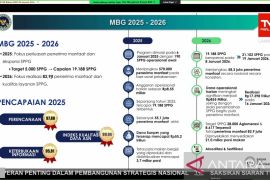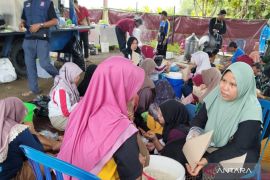Nozipho Mxakato-Diseko, the chairperson of the "G77 and China" which represents 134 developing countries, reminded in a statement that under the United Nations Framework Convention on Climate Change (UNFCCC), the developed countries are obliged to provide finance resources, technology transfer and capacity building to all developing countries to assist them address the challenges of climate change.
Such obligations also apply in the Paris climate agreement, she said, "This is a legal obligation under the Convention. It is neither aid nor charity, nor is it the same as development assistance."
"We find ourselves confronted with a simplistic narrative that suggests that the world has changed since the UNFCCC was adopted in 1992 due to the dramatic economic development gains of some of our members and hence that it is time to expand the pool of so-called donors of climate aid and to narrow the list of those eligible to receive this support to only the poorest of the poor", Mxakato-Diseko said.
"This narrative serves narrow national interests of developed countries and says little about reality. If the world has really changed so much, we ask why it is that after all these decades all our members remain developing countries with little or no voice in global decision-making processes and institutions?"
She added that developing countries have long since been forced to adapt to climate change and increasingly frequent extreme weather events resulted from emissions of greenhouse gases generated over centuries, predominantly by developed countries.
For them, addressing climate change is not about economic competitiveness or making profits from renewable energies, but a more fundamental issue of human development and environmental protection.
"The reality is that developing countries require climate financial resources, technology transfer and capacity building both now and far into the future, in some case just to survive - let alone make the transition to the low carbon economy," Mxakato-Diseko said.
However, all too often the developing countries have had to respond to crises without the assistance of developed countries by using their own scarce domestic resources or with voluntary help from fellow developing countries.
"The provision of financial resources, technology transfer and development and capacity building, is central to the Paris Agreement," said the chairperson.
"Without adequate, predictable and sustainable means of implementation, it will be impossible to reach our agreed target of limiting the increase in average global temperatures to below 2 degrees Celsius. This is because key mitigation potential is in developing countries and these countries are not able to realize this potential on their own."(*)
Editor: Heru Purwanto
Copyright © ANTARA 2015











